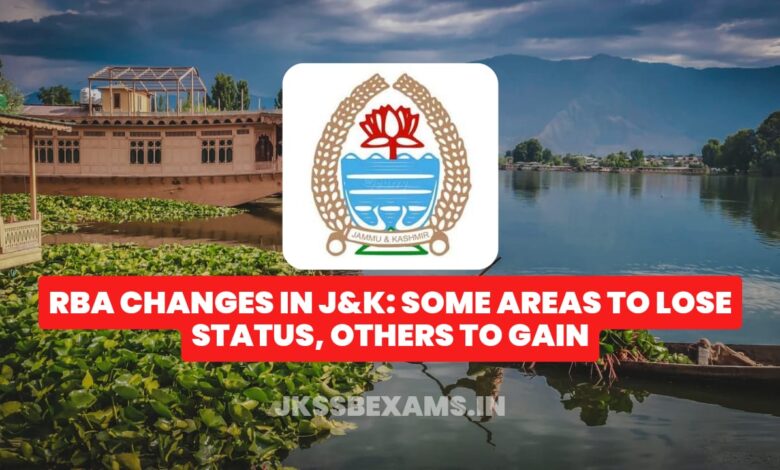RBA Changes in J&K: Some Areas to Lose Status, Others to Gain

RBA Changes in J&K: Some Areas to Lose Status, Others to Gain
In a recent development, the Jammu and Kashmir Socially and Educationally Backward Classes Commission (JKSEBC) has reached out to the Government to gather crucial information regarding villages categorized under the Residents of Backward Areas (RBA).
Chaired by Justice (Retired) GD Sharma, the Commission, which includes seasoned bureaucrats such as Rup Lal Bharti and Retired IPS officer Munir Khan, has been actively engaged in its mandate since its establishment in March 2020, with its term extended until September 2024.
The focus of the Commission currently lies on the inclusion and exclusion of areas under the RBA category, aiming to finalize this task by September. To achieve this, the Commission has initiated correspondence with the Government, seeking comprehensive data on various parameters defining backwardness and development in these villages.
Key aspects such as road infrastructure, proximity to educational institutions, healthcare facilities, and communication networks are among the criteria for evaluation. This meticulous approach underscores the Commission’s commitment to ensuring equitable distribution of resources and opportunities.
Of particular significance is the observation that the RBA category is unique to Jammu and Kashmir, with no similar provision in other states or union territories. The decision to allocate 10 percent reservation under this category has sparked debate, especially considering the existing reservations that have reached 60 percent, leaving a limited scope in the Open Merit category.
The Commission’s forthcoming decision regarding the inclusion or exclusion of villages from the RBA list will be informed by the Government’s report, which will shed light on the progress made in these areas. Villages demonstrating significant development may be considered for exclusion, while those lagging behind will continue to benefit from the RBA status.
Simultaneously, the Commission is actively reviewing numerous representations from communities across the region, advocating for the inclusion of their villages under the RBA category. This inclusive approach underscores the Commission’s dedication to addressing the diverse needs and aspirations of the populace.
Furthermore, the Commission is contemplating on-site visits to select villages to gain firsthand insights into their developmental status. This proactive measure demonstrates the Commission’s commitment to conducting a thorough assessment and ensuring informed decision-making.
In addition to its focus on the RBA category, the Commission has also recommended the inclusion of various ethnic tribes in the Scheduled Tribe (ST) category, reflecting its broader mandate to address socio-economic disparities and promote inclusivity.
The ongoing deliberations regarding reservation policies underscore the complex socio-political landscape of Jammu and Kashmir, with each decision bearing implications for equitable representation and access to opportunities across diverse communities.








